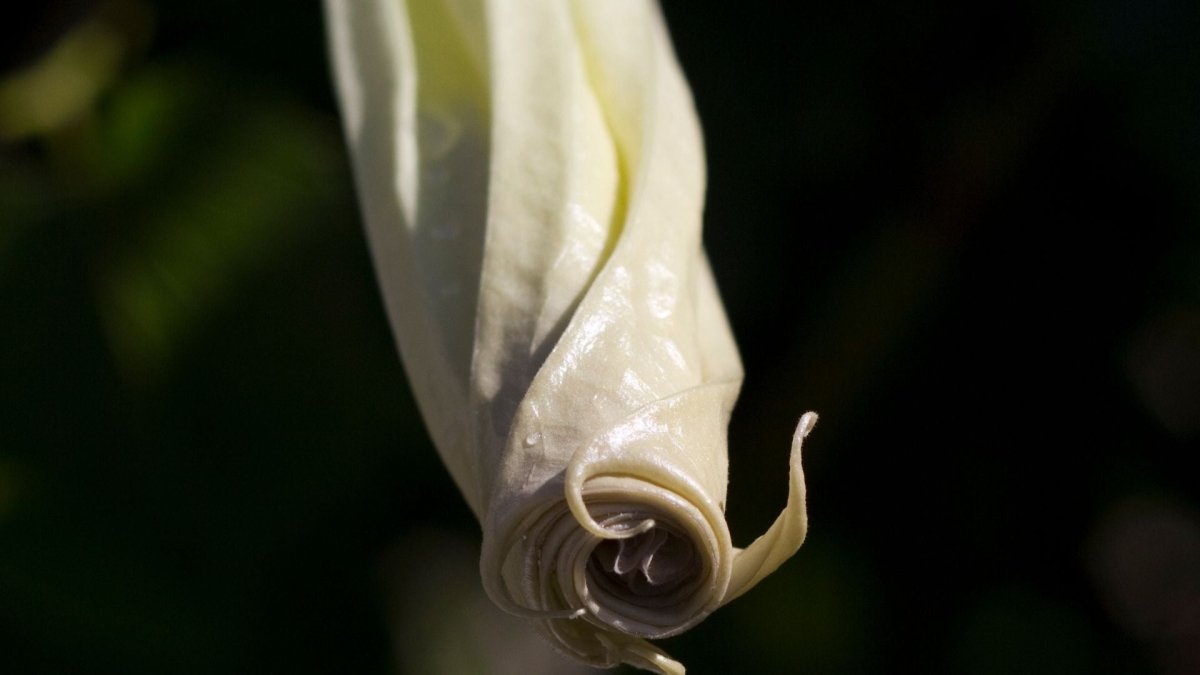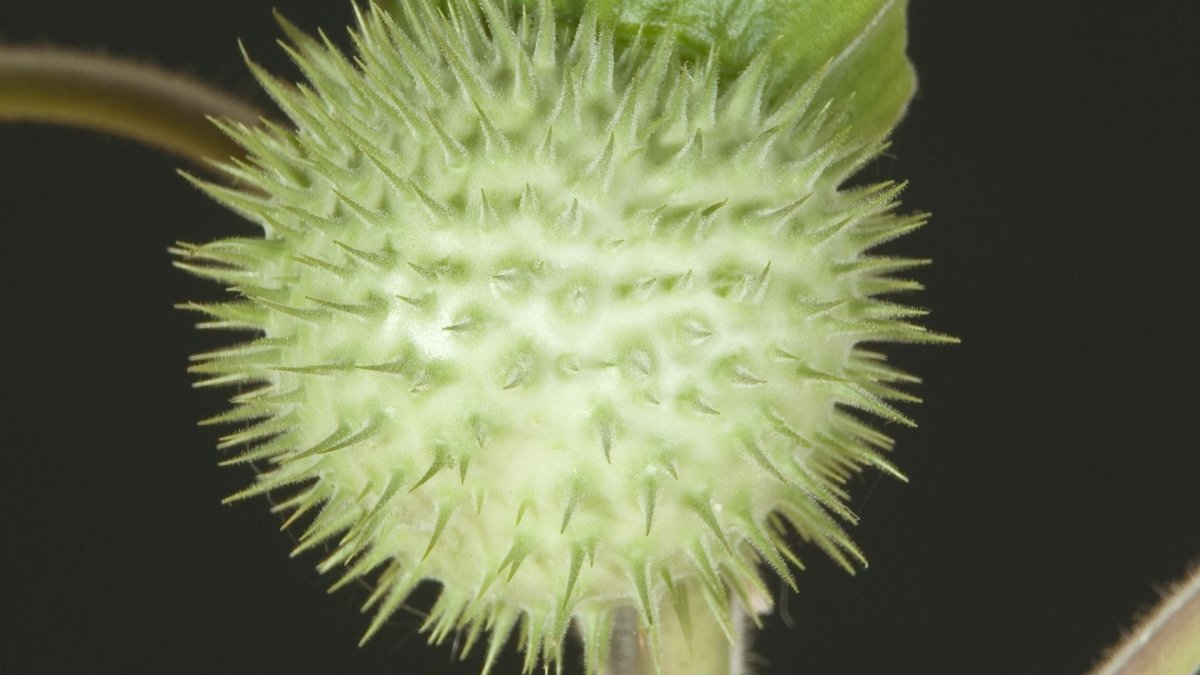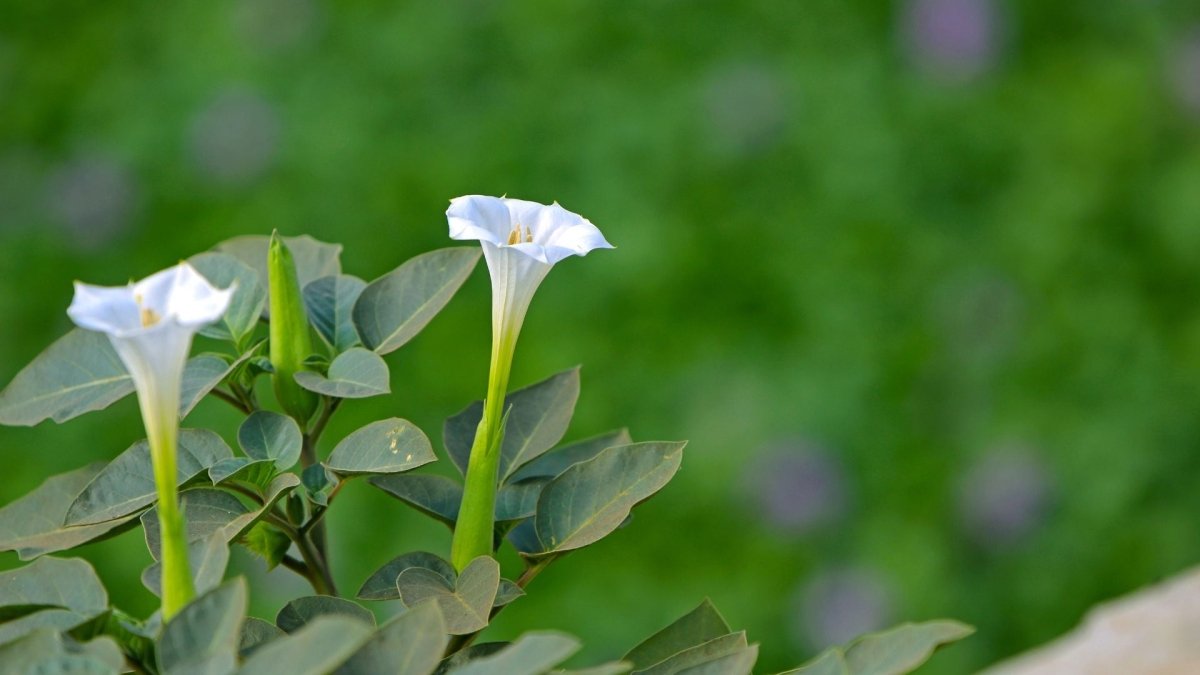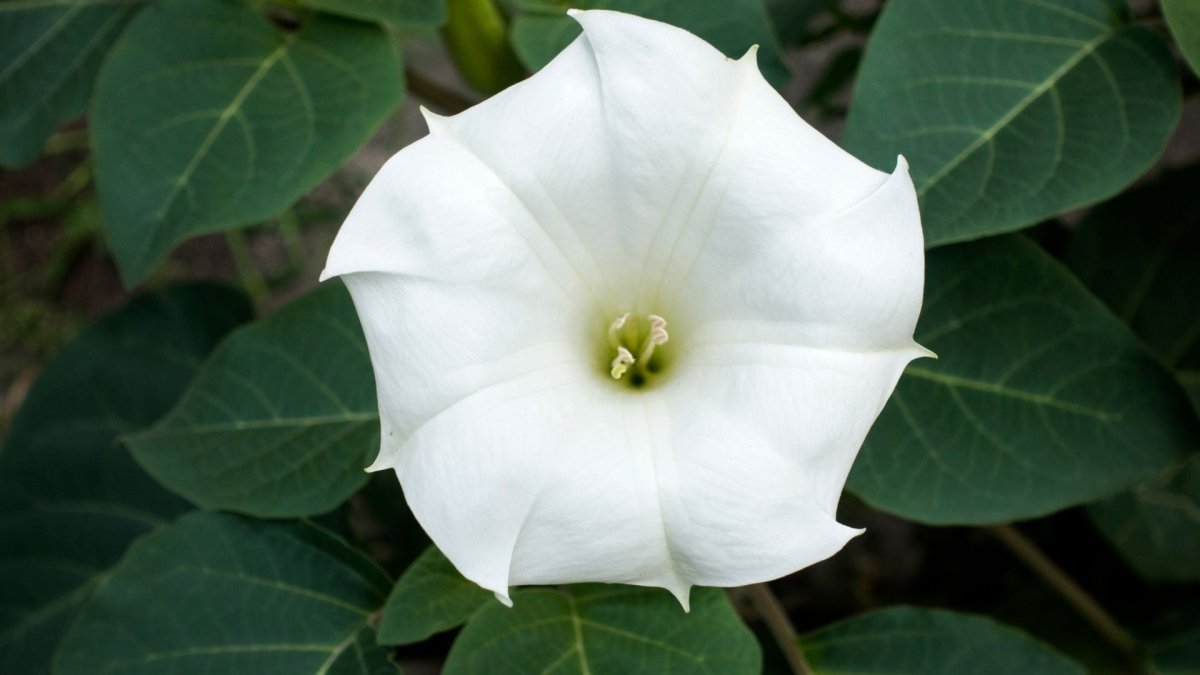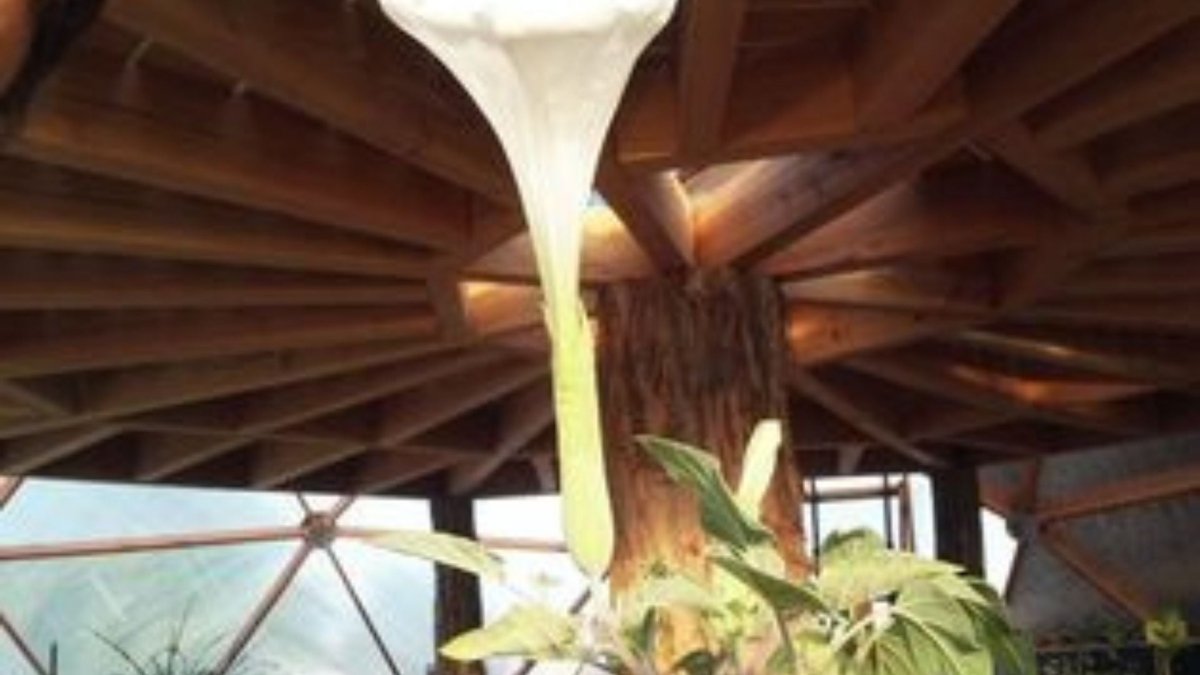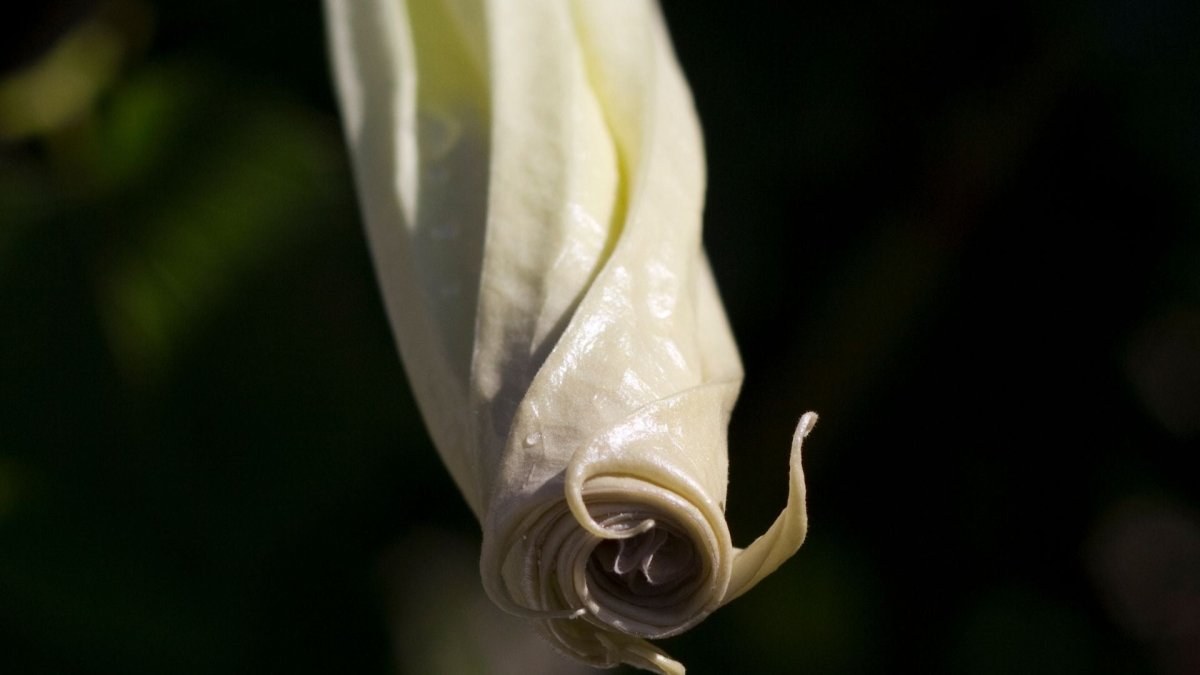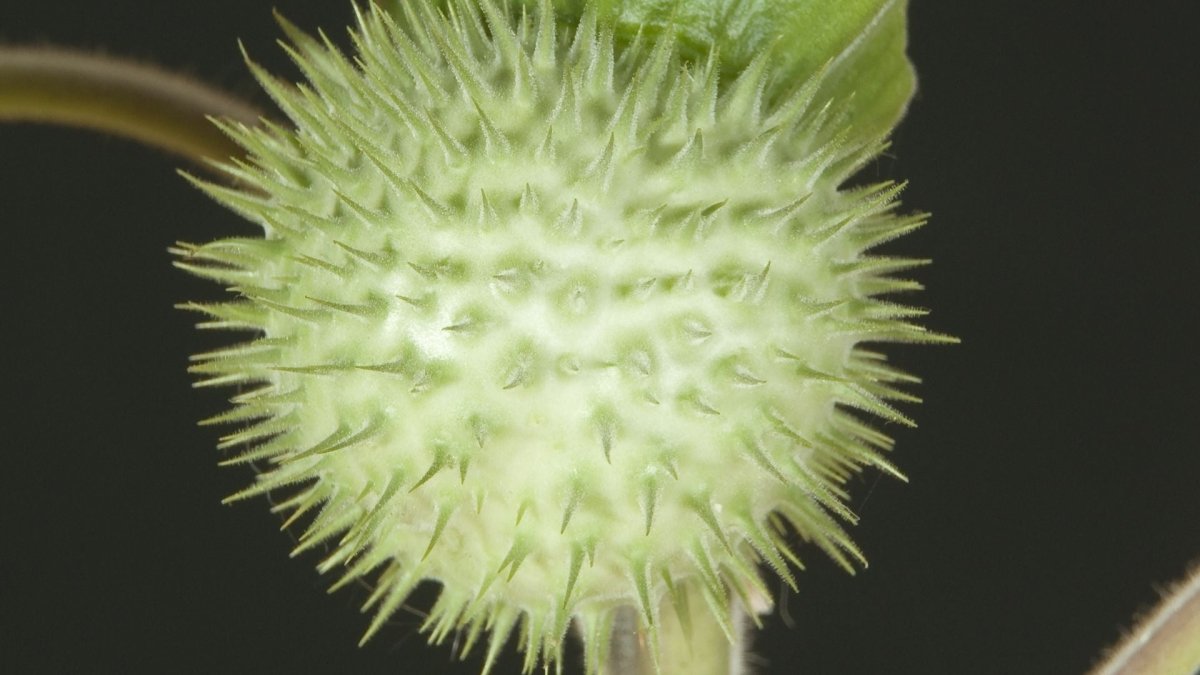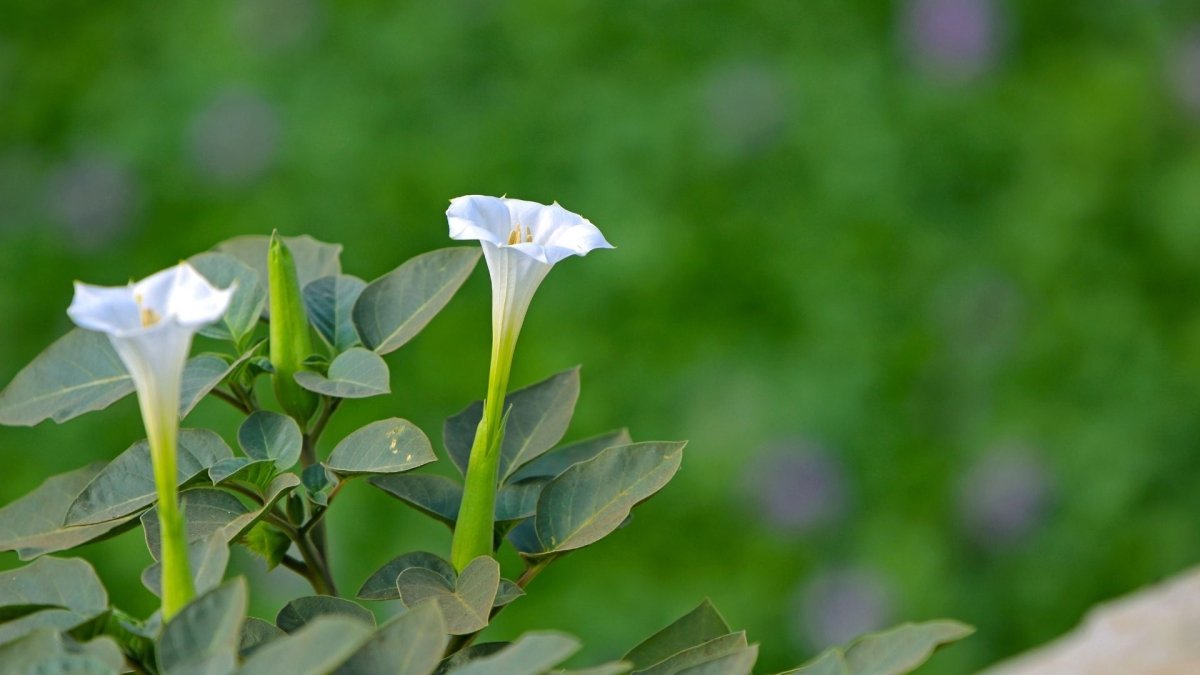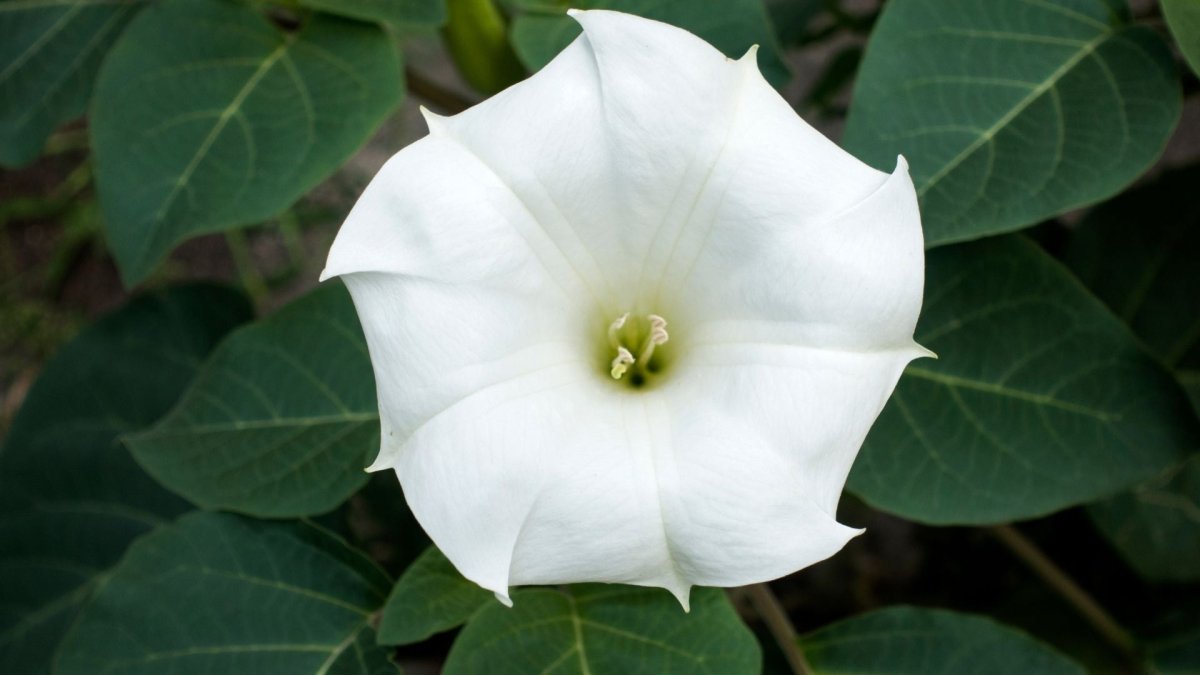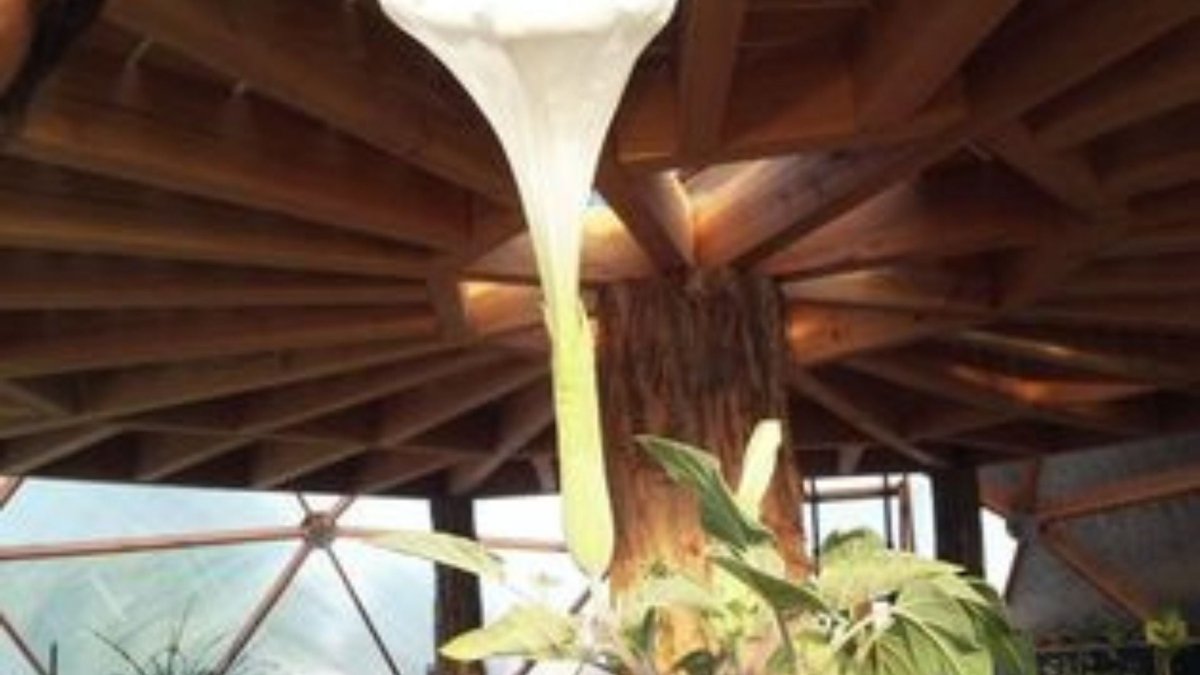Datura Inoxia - Seeds
Awaken your senses to the captivating spectacle of Datura inoxia and let it
magic of its seeds transport your garden to horizons
dreamlike
LEGBA
Datura Inoxia - Seeds
Datura Inoxia - Seeds
Couldn't load pickup availability
The Mysterious Seeds of Datura Inoxia: Between Beauty, Use, and Caution
Datura inoxia, known by various names such as angel's trumpet or devil's weed, is a plant that fascinates as much as it intimidates. At the heart of this duality are its seeds, small capsules of potential and prudence. This article aims to explore the multiple facets of Datura inoxia seeds, from their cultivation to the precautions essential to their handling.
What is Datura Inoxia?
Datura inoxia is a plant in the Solanaceae family, native to regions of North and South America. It is distinguished by its large, trumpet-shaped flowers and velvety leaves, but it is its seeds that are attracting particular interest for their growth potential and powerful effects.
Growing Datura Inoxia
Growing Datura inoxia begins with planting its seeds. These require well-drained soil and sufficient exposure to sunlight. Spring is the ideal season to sow them, making sure to space them appropriately to allow optimal development. Datura seeds germinate in one to three weeks, gradually revealing the first outlines of this captivating plant.
The Use and Effects of Datura
Historically, Datura inoxia has been used for medicinal and ritual purposes, primarily due to its psychotropic and analgesic properties. However, it is crucial to emphasize that the use of Datura must be approached with extreme caution due to its high toxicity. The alkaloids present, such as atropine, scopolamine, and hyoscyamine, can cause effects ranging from simple disorientation to intense hallucinations and even fatal outcomes in overdose.
Precautions to take
The beauty of Datura inoxia should not obscure the risks associated with its handling. It is imperative to wear gloves when handling seeds and other parts of the plant to avoid skin contact with toxic substances. Furthermore, the cultivation of Datura must be approached with responsibility, taking into account local regulations that may restrict or prohibit its possession and use.
Buy and Sell Datura Seeds
Purchasing Datura inoxia seeds should be done from reputable suppliers to ensure their quality. Interested gardeners should inquire about the legality of trading and growing it in their area, as restrictions may apply due to the plant's toxicity.
Conclusion
Datura inoxia seeds open the doors to a world both magnificent and mysterious, where the beauty of the plant mixes with its dangerous potential. Growing Datura inoxia requires extensive knowledge, respect for its powerful properties, and an awareness of the responsibilities that come with owning it. As with anything of this power, the key is balance and caution.
Shipping info (size, period...)
Shipping info (size, period...)
Shipping Information
Quality Packaging: We take care to package your Datura inoxia seeds in airtight doypack bags , thus guaranteeing their freshness and viability to your garden. These specially designed packages protect the seeds from moisture and light, preserving their optimal quality.
Authentic Provenance: To offer you the best seeds, we select those which mainly come from our mother plants . This approach allows us to guarantee the purity and genetic quality of each seed you receive.
Quantity Options: Whether you are a beginner hobbyist or an experienced gardener, we offer our seeds in sachets adapted to your needs: choose between quantities of 20, 70 or 700 seeds to start your cultivation of Datura inoxia.
Flexible Delivery Methods:
- Tracked Letter: For orders containing only seeds, we ship by tracked letter , allowing you to easily track your order until receipt.
- Expanded Options: If your order includes other items or if you prefer a different shipping method, we also offer the possibility of shipping via Colissimo or Point Relais , for increased flexibility and convenience.
Our goal is to provide you not only with the best quality seeds, but also with a smooth and reassuring shipping experience. If you have any questions about shipping or need help choosing which option is best for you, please do not hesitate to contact us.
Detailed Description and Benefits
Detailed Description and Benefits
Datura inoxia, also known as angel's trumpet, is a plant remarkable both for its beauty and for its various uses, although potentially dangerous due to its toxicity. Here is a description of its botanical characteristics and uses:
Botanical description
- Flowers: The flowers of Datura inoxia are large and white, often described as trumpet-shaped. They have five fused petals forming a tube and are radially symmetrical. The plant has no nectar or spur, and has a single pistil and a style, with an ovary in the upper position.
- Fruits and seeds: The fruit is a capsule that opens when ripe, releasing several seeds. The capsules are characterized by their spiny appearance, which gives them a somewhat intimidating appearance.
- Leaves: The leaves of Datura inoxia are alternate, with a rounded base and may have toothed or entire edges. They are generally large, ranging from 100 to 180 mm in length, and are hairy on the underside.
- Growth and development: Datura inoxia is an annual plant that is characterized by a clear, watery sap. It is not parasitic and has green growth typical of non-woody plants.
Uses
- Medicinal: Historically, various cultures have used Datura inoxia for medicinal purposes, particularly for its analgesic and anti-asthmatic properties. However, due to the presence of alkaloids such as scopolamine, atropine and hyoscyamine, which can be highly toxic, its use should be extremely careful and under strict medical supervision.
- Insecticide: The toxic properties of Datura inoxia also give it use as a natural insecticide. Extracts from the plant can be used to repel or eliminate harmful insects in gardens and agricultural crops. However, as with medicinal uses, it is crucial to handle the plant with care to avoid harmful effects on human or animal health.
In summary, Datura inoxia is a fascinating plant due to its morphology and its multiple potential uses. Nevertheless, its toxicity highlights the importance of caution and thorough knowledge when using it for medicinal or insecticidal purposes
How to cultivate it? Growing guide
How to cultivate it? Growing guide
To successfully grow Datura inoxia , it is essential to follow a detailed and precise growing guide, integrating long-tail keywords to optimize SEO. Here are the necessary steps and conditions to take into account, enriched with these key expressions:
Sowing
- Period: Sowing Datura inoxia in spring is ideally done after the last frost, or indoors a few weeks before the end of winter for outdoor transplanting of Datura seeds .
- Preparation: It is recommended to soak Datura inoxia seeds in lukewarm water for 24 hours to promote germination.
- Technique: Sow seeds at a depth of 0.5 to 1 cm in well-drained soil and keep the substrate slightly moist, which is crucial for successful germination of Datura inoxia seeds .
Growth
- Soil: Datura inoxia prefers rich, well-drained soil , essential for healthy growth.
- Watering: Regular watering of Datura inoxia is necessary, especially during periods of high heat for optimal growth.
- Fertilization: A regular supply of fertilizer for Datura inoxia will promote abundant flowering.
Germination time
- Time: Datura inoxia seeds usually germinate within 2 to 4 weeks , a key point for planning gardening.
Flowering period
- Season: The flowering of Datura inoxia from summer until the first frost offers large white and fragrant flowers, a fascinating natural spectacle.
HabitatExhibition
- Light: Good exposure to sunlight for Datura inoxia is crucial for optimal flowering.
Temperature
- Climate: Datura inoxia thrives in warm climates , but it is sensitive to cold, an important factor for gardeners.
Rusticity
- Resistance: The hardiness of Datura inoxia against frost is limited, which makes it an annual in temperate climates.
Did you know? (Discover exciting stories!)
Did you know? (Discover exciting stories!)
Datura inoxia, with its mystical allure and toxic properties, has captivated the human imagination throughout the ages, woven into the folklore, religious beliefs, and occult practices of various civilizations. Here are some fascinating aspects that shed light on these dimensions:
Symbolism in civilizations and religions
- In Native American cultures: Datura was often associated with spiritual and passage rituals. Among some tribes, it was used by shamans to enter a trance and communicate with the spiritual world. The plant symbolized a bridge between the physical and spiritual world, but it was also respected and feared for its power and toxicity.
- In Medieval Europe: Datura, along with other poisonous plants, was sometimes associated with witchcraft and black magic. Witches were believed to use Datura in their potions and ointments to fly through the air or enter a trance. It therefore symbolized both power and danger, linked to occult knowledge.
Meaning of the name
- “Datura” likely comes from the Hindi “Dhatura,” meaning poisonous plant, reflecting its dangerous nature and hallucinogenic effects.
- “Inoxia” means “thornless” in Latin, although this may seem counterintuitive because the plant actually produces thorny seed capsules. This name could refer to the relatively smooth texture of the leaves and stems compared to other Datura species.
Nickname “Trumpet of Death”
- The nickname “Trumpet of Death” echoes the funnel shape of Datura flowers, which resembles a trumpet. This dramatic nickname could also highlight the dangers associated with the plant due to its high toxicity. Ingesting the plant can lead to serious poisoning or even death, which could explain this macabre association.
- Another interpretation could connect this nickname to the use of the plant in shamanic or ritual practices aimed at communicating with the afterlife, making the "trumpet" a symbolic means of calling or guiding spirits.
Use in poison
- Throughout history, knowledge of Datura's toxic properties has been exploited for nefarious purposes, including as poison. In some regions and times, the plant has been used to poison water or food, often in the context of war, political rivalries, or even personal score-settling.
Datura inoxia therefore embodies a fascinating duality: it is both a plant of haunting beauty and a symbol of power, spirituality and danger. Its role in spiritual and occult practices, as well as its deadly potential, give it a unique place in the pantheon of plants shrouded in mystery and respect.
FAQs
FAQs
1. When is the best time to sow Datura inoxia seeds?
The best time to sow Datura inoxia seeds is early spring, after all risk of frost. Indoors, you can start sowing 6 to 8 weeks before the last expected frost.
2. How to ensure successful germination of Datura inoxia seeds?
For successful germination, soak seeds in lukewarm water for 24 hours before sowing. Sow them at a depth of 0.5 cm in well-drained soil and keep the substrate moist but not soggy. A constant temperature of 20-25°C will promote germination.
3. Are Datura inoxia seeds toxic and how to handle them safely?
Yes, Datura inoxia seeds are toxic. Handle them with gloves and avoid touching your face. Keep them out of reach of children and pets.
4. What type of soil is best for growing Datura inoxia from seed?
Datura inoxia prefers rich, well-drained, slightly alkaline to neutral soil. A good amendment with compost before planting will help provide the necessary nutrients.
5. How long does it take for Datura inoxia seeds to germinate?
Datura inoxia seeds can take between 2 to 5 weeks to germinate, depending on temperature and humidity conditions.
6. How to care for young Datura inoxia plants grown from seed?
Young Datura inoxia plants require partial to full sun exposure and regular watering to keep the soil lightly moist. Fertilize lightly once a month with a balanced fertilizer.
7. Are there any specific predators or diseases to watch out for when growing Datura inoxia from seed?
Datura inoxia plants can be subject to attacks by aphids and whiteflies. Fungal diseases like downy mildew can also occur in conditions that are too humid. Inspect the plants regularly and treat them with suitable organic products if necessary.
Further information
Further information
Additional Information on our Datura Inoxia Seeds
At Legba, we are passionate about high quality Datura Inoxia seeds, sourced from our eco-friendly growing method, which emphasizes harmony with nature. Our commitment to sustainable agriculture is demonstrated through our growing practices, which exclude the use of any chemicals, including those certified organic, to ensure the purity and safety of our products.
Eco-responsible Cultivation Method: Our approach is based on the balance between beneficials and pests, thus promoting a healthy garden ecosystem where natural predators regulate pest populations. This method reduces the need for human intervention and preserves the biological integrity of our plants.
Use of Rainwater: We irrigate our crops exclusively with collected rainwater, thereby reducing our water footprint and providing our plants with a fresh, natural source of water. This practice underlines our commitment to the conservation of natural resources and respect for the life cycle of plants.
Commitment to Quality and Sustainability: By choosing our Datura Inoxia seeds, you not only support responsible agriculture but you also ensure you obtain a product of exceptional quality. We ensure that each seed packet, whether it contains 20, 70 or 700 seeds, meets our rigorous selection and purity criteria.
Why choose our seeds? In addition to our eco-friendly approach, we offer unrivaled expertise and ongoing support to our gardening customers. Whether you are a gardening enthusiast or expert, our growing tips will help you succeed with your Datura Inoxia plantings, allowing you to fully enjoy the beauty and unique properties of this fascinating plant.
We are confident that the quality of our seeds and our dedication to environmentally friendly farming will provide you with a rewarding and sustainable gardening experience. Join us on our journey towards a greener future, one packet of seeds at a time.
Share
